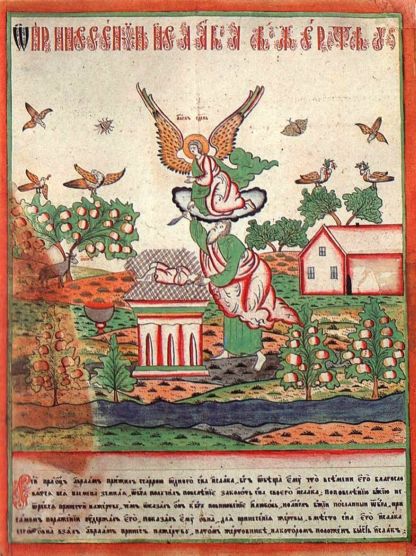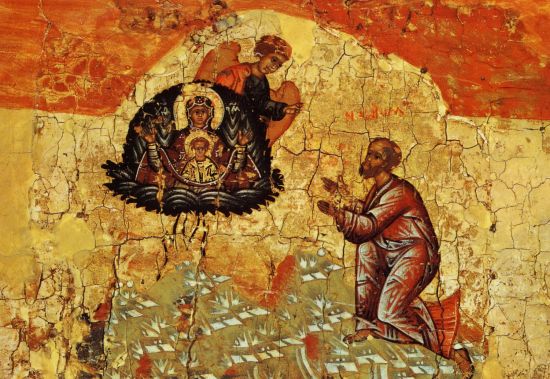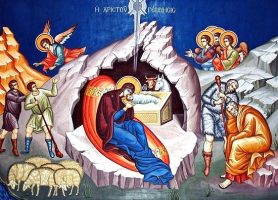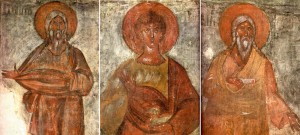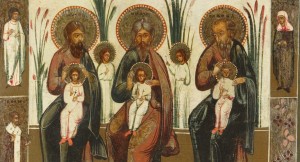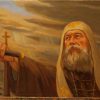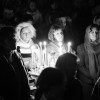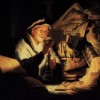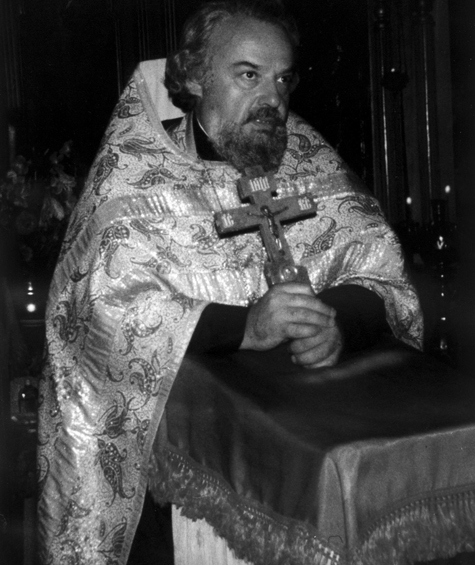 In the Name of the Father, and of the Son, and of the Holy Spirit!
In the Name of the Father, and of the Son, and of the Holy Spirit!
Today is called the “Sunday of the Holy Forefathers” because it is dedicated to the Forefathers of Jesus Christ. What was particularly remarkable about these people and their lives? It was that the Lord called them, helped them, and acted through them when all things earthly seemed to have betrayed and abandoned them.
Here is our common forefather Abraham, the father of believers, as the Apostle Paul calls him [cf. Romans 4:16]. He lived nearly 4,000 years ago, but we still venerate him. God called him from among the pagans and idolaters, saying to him: “Go from your house, from your father’s kin, from your country, and go into the land that I will show you. Separate yourself from them” [cf. Genesis 12:1].
Thus the foundation of faith was laid, first of the Old Testament and then, on its foundation, of the New Testament. But look: what does God promise Abraham? That if would remain loyal and faithful, all the tribes and peoples of the earth would be blessed through his descendents. He promises him a country and land on which they will glorify God.
And what do we see instead? Abraham grows old, but still remains childless… His wife can no longer give birth to a child, and he must bequeath all his property to his servant Eliezer, because he did not have any heirs. But what had God promised him? What kind of posterity will he have, if he does not have a single son or daughter?
As for the land on which he is living, God says: “I will give it to you.” But this land remained alien: different kings, princes, and tribes ruled every city and fortress. He was nobody there! He was a wanderer and stranger.
But finally his wife, who had already lost hope, gave birth to a child by God’s blessing. But when this boy had gotten older, God said that he must offer him as a sacrifice, as the pagans did with their first-borns (they offered them as sacrifices to pagan gods, killing them on the altar). Does this mean that Abraham must be deprived of his final consolation? But he knew that God does not want or do evil, and that He will raise the dead, and so he set off with his son to Mount Moriah, to the place where the Temple of Jerusalem would later stand. Then the Lord said to him: “I see your faith and now My blessing will be on you and on your descendents” [cf. Genesis 22:16-17]. And he gained everything, although he had had nothing. The Lord, indicating the night sky, said to him: “Look at these stars: that is as many descendents as you will have – you, who were childless, who had no human hope” [cf. Genesis 22:17].
We are among these stars, among these descendents: for spiritually we are all children of this man who believed wholly in God, come what may. He knew that the Lord is good and he never strayed from his path.
A few centuries later the Lord called another prophet and leader: Moses, whom you all know. When he was born he had no chance of surviving, because Pharaoh ordered that all male Israelite children be exterminated, so that they would not increase in number. When his mother gave birth to him, she did not know what to do, because if it cried they might hear him outside and come kill him.
She hid him for a month, then for another, for as long as this was possible – but the child was growing. She put him in a basket, carried it to the river Nile that flows to this day in Egypt, placed the basket among the reeds in the water, and left. But her daughter, the newborn’s older sister, stayed in order to watch what would happen. Would not the stream carry away the basket with the child? Would people take it away? What kind of chance does a child thrown into a river have?
At that time the daughter of Pharaoh came there to bathe. She heard a child’s cry from the reeds and sent her maids there, who brought her the basket. They opened it and saw a swaddled baby crying. Then the daughter of Pharaoh said: “This is probably one of the children of the Israel, who was hid here by someone. I will take him and raise him as my son” [cf. Exodus 2:5-10].
She took him to her home, giving him the name of Moses, which in Egyptian means “son” and in Hebrew means “drawn out of the water.” He grew up in her home as her son; he had an education, wealth, and all the provisions of life one could dream of. But, as it is stated in Scripture, having learned all the wisdom of the Egyptians, he still preferred to go to his brethren [cf. Acts 7:22].
When he saw that his brethren according to faith and flesh were suffering from the oppression of the Egyptian king, he decided to deliver and save them. He went to them and began to say that they were slaves, but that they should be free – but this made them even more afraid. Once when Moses saw how an Egyptian beat an Israelite slave, he intervened and killed the Egyptian; he was a powerful man, and killed him with one blow. When word got around, he had to flee from the city and hide in the desert mountains.
What should he do? He had not succeeded at his life’s work and he was being pursued by the king. Moses went into the desert and found nomads, peaceful and God-fearing people. He married the daughter of their leader and tended his sheep. Such was his entire calling! He tended the sheep for one year, then another, and then continued to do this for many years. Of course, all hope had gone out from his soul. And this is when the Lord called him.
Once he was wandering with his sheep on a high mountain when he saw a bush that was burning without being consumed – the “Burning Bush” – and heard the Voice: “Take off your shoes: this is holy ground.” When he had done this and bowed down, the Voice said to him: “Go to the King of Egypt and say: ‘Thus says the Lord God, let My people go from slavery to freedom.’” Again Moses wavered. He replied: “Where should I go? How can I stand before the king? For he will cast me out and kill me, and will not even allow me near him. Who am I?” But many years had passed, and the king in whose court he lived had long since died and there was a new king. “Go!” said the Lord [cf. Exodus 3].
Moses could not have had any human advantage. But he went to Pharaoh, and – not with his own power, but with God’s power – said: “Thus says the Lord of the Universe: Let My people go!” First Pharaoh cast him out, but then the natural disasters began: the livestock died, there was pestilence, and then came the locusts. Pharaoh understood that the Lord God was speaking through this man’s mouth. He then allowed all the captive people of Israel to go.
The people left, headed by Moses – with a light glimmering ahead of them. This was the pillar of fire by which the Lord showed them their way in the wilderness. When they reached the gulf they saw the king’s soldiers galloping after them on horseback, carrying bows. The king had come to his senses and decided to stop the Israelites because he needed their free labor.
It again seemed that there was no way out. In terms of human understanding, everyone should have perished. Then the Lord said: “Stretch forth your rod!” Moses stretched it forth, and a strong wind came over the gulf, the sea began to part, and the people went forth knee-deep in water on the sand. They passed through the sea. When the people had passed through, the waters returned and Pharaoh’s horsemen were no longer able to catch them.
You see, the Lord again helped them on the very edge of destruction. Moses led the people through the desert – and the desert was not like Egypt, where the food was excellent, where there was shade from the trees and vivifying water in the Nile. And although the hard labor had been difficult, still everyone had been fed, clothed, and shod. But now there was this bare steppe without a single tree, but only rocks. The people were grumbling and saying: “Here we are all dying of hunger. It would be better to be slaves than to be walking here in this deathtrap.”
Then Moses again prayed, saying: “Lord, it is all over with us. We have no way out.” During this time migratory birds were flying through the desert, which were caught in their nets and used to feed the people [cf. Exodus 16:11-13]. Another time, when they were suffering from thirst, they came to a rock and God said to Moses: “Strike it only one time, and here there will be a spring.” Moses struck the rock once, but he did not have sufficient faith. He struck it a second time, and the spring gushed forth and flowed. The exhausted people pressed up against this water. But the Lord appeared to Moses in his sleep, and reproached him by saying: “You struck twice, because you did not believe Me. But I said to you: ‘Just touch the rock.’” [cf. Numbers 20:8-12].
Thus, in the sacred history of the Old Testament we see that the Lord called people who were in grave and difficult circumstances, who could no longer count on anything earthly. Despair alone awaited them, but they did not give in to despair. Later the Lord would say: “Do not be fear; only believe” [cf. Mark 5:36]. This is what they did: they did not fear, but only believed. It is for this that we glorify their names today. Therefore today is a festal day, preceding the days of the Nativity, one that is dedicated to the memory of these men who stood firm in their faith, hope, and love for the Lord. Amen.
Translated from the Russian












